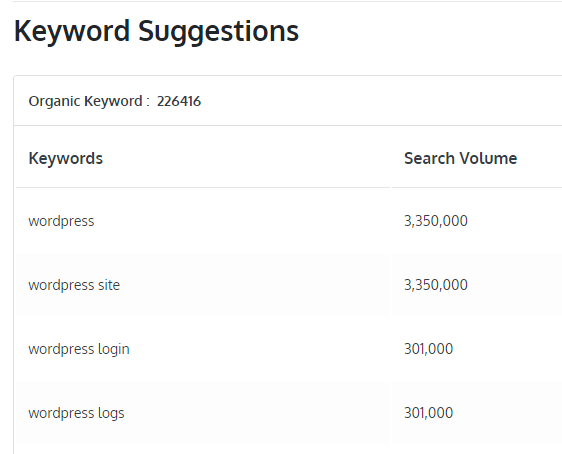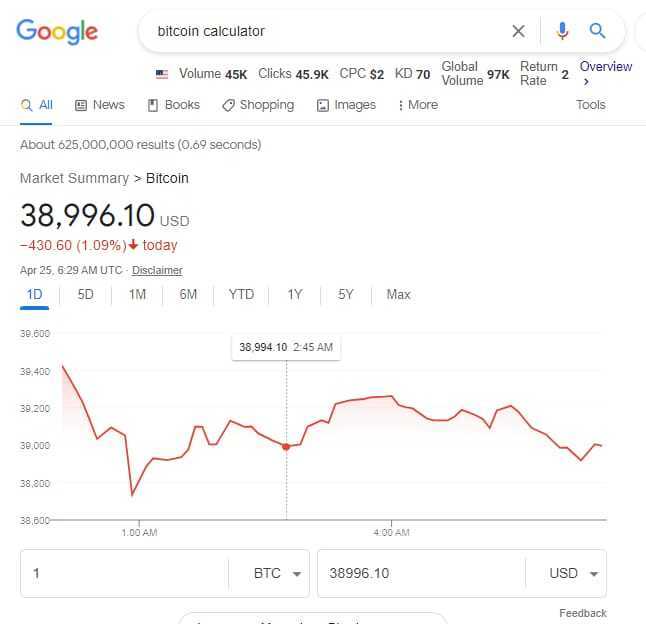Most articles related to SEO and content strategy will tell you to conduct thorough keyword research.
They will tell you different ways to do it, including autocomplete results, related searches, keyword research tools, etc.
And in the end, they’ll ask you to list out your target keywords.
But wait. Take a pause here. Can you read in between the lines?
If yes, you know they ask you to target the right keywords for your marketing strategy.
However, you’ll not find them talking about how to select the right keywords.
I agree your selection will depend on your marketing goals and plans. But, there must be some metrics to pick and drop keywords?
You would not want to target keywords no one is searching for. Or rank for keywords on the nth page of Google.
How does one go about it?
Well, it is with the help of keyword metrics.
Keyword metrics, also known as keyword qualities, define a keyword’s value.
In this post, we will discuss what keyword metrics are and learn how to use them.
Scale insightful marketing content across the web.
We help you grow through expertise, strategy, and the best content on the web.
5 keyword metrics that make selection easy:
In the never-ending race for search engine optimization, keywords make a big difference.
So, knowing the keyword metrics and using them for determining your target keywords is important.
Let’s start with a rundown of the 5 keyword metrics that help you in your journey:
- Search Volume
- CPC (Price)
- Competition (Difficulty)
- Word Count
- Intent
Now, let’s take one keyword metric at a time and learn about it.
1. Search volume
The number of times people search a keyword on Google constitutes its search volume.
It indicates the demand for a keyword among the users.
In marketing terms, the search volume of a keyword tells you whether people are searching for it or not.
Most SEO tools, including RankWatch’s free keyword research tool, offer search volume as a part of their data.
For example, here are the suggested keywords with their search volumes for the root keyword ‘WordPress:

The keywords ‘WordPress and ‘WordPress site’ have a higher search volume than the keywords ‘WordPress login’ and ‘WordPress logs’.
And as you scroll down, you’ll find more keywords with a much lower search volume.

Now, the conclusions we can draw are:
- Users have an interest in these keywords.
- Keywords with high search volume can attract more visitors.
But, remember, search volume is just the first keyword metric.
It is not the ONLY one that will help you rank and drive organic traffic to your site.
Also, keyword search volume is time-dependent; it keeps changing from time to time.
You will notice a high search volume for ‘Christmas tree’ in December or during the holiday season.
But, when the holiday season is over, the search volume will begin to decline and can even approach zero.
Here’s the search volume in October 2021 (isn’t this very less?):

It is known as a seasonal trend and can affect your marketing strategies significantly.
So, you must routinely check the search volume of your target keywords and optimize accordingly.
Again, search volume isn’t the ONLY factor affecting your SERP rankings and traffic.
You need to look at other keyword qualities as well before making a choice.
That leads us to the next point.
2. CPC (Price)
Cost-per-Click is the amount paid by an advertiser every time a user searches a keyword and clicks on their ad.
It is the price paid for capturing a visitor, and every keyword has a price.
A high CPC indicates that a large number of advertisers are after that keyword. Also, that ads will defeat the organic results.
So, you will have a tough time trying to rank for those keywords and pulling visitors to your site.
You can find the CPC or price of a keyword with the help of most SEO tools.
Let’s research keywords for ‘buy bitcoins‘.

Each keyword will cost nearly $10 to take a visitor to the site.
It means many advertisers are ready to capture the top spots in the SERPs, and organic results might not get their due traction.
So, it won’t be wise to select and target keywords with high CPC.
But, CPC also keeps changing from time to time. As the number of advertisers targeting a keyword reduces, the CPC comes down.
So, with a highly compelling content piece, you can take that risk.
The competitiveness of a keyword makes the picture more clear.
3. Competition (Difficulty)
Keyword difficulty or competition tells how easy it is to rank on the first page of Google.
It helps you assess how tough it would be for you to rank in the top search results for a given keyword.
Even if the keyword has an impressive search volume, a high difficulty score will not produce the desired performance.
The reason is simple. Since many users search for the keyword, several established websites optimize for it and eye the top.
Most keyword research tools will provide you with a ranking difficulty score.
Here are some of the factors considered by most of them while determining the difficulty score:
- High-quality backlinks of the top pages
- Authoritativeness and trustworthiness of top domains
- Frequency of changes in the top positions
- Content quality of top pages
That said, if you find a keyword with a high difficulty score, you will have to work all-round to rank for it.
Look at the competition for these keywords:

For this tool, keyword difficulty ranges between 0 and 1, with 1 being the highest.
Targeting keywords like ‘personal loan’, ‘loan personal’, and ‘personal loan bad credit’ would be a bit tricky.
You’d have to put in a lot of effort to enhance your site’s backlinks, authority, etc., to rank for them.

On the other hand, ranking for ‘how a personal loan is calculated’, ‘loan calculator personal’, etc. is much easier.
By looking at the keyword difficulty, you can gauge which keywords will be easy to rank and get sought results.
Next, you must analyze the keyword length.
4. Word count
Word Count refers to the number of words in a search query.
For example, the keyword ‘credit cards’ has a word count of 2 while ‘how to install windows 10’ has a word count of 5.
Smaller word counts correspond to short-tail keywords, which are more generic. They have high search volumes, prices, and competition. So, it isn’t easy to rank for them.

On the other hand, larger word counts make more specific long-tail keywords. They give you insights into the purpose of the search.
Plus, their search volumes, prices, and competition are comparatively low. Thus, it becomes easier to rank for them.

But, which ones should you choose?
It’s a tricky question, and even experts might get confused.
But, here’s a catch.
Most long-tail keywords contain short-tail keywords. If you smartly target them, you can hit two birds with the same arrow.

In this way, word count analysis will help you pick more relevant and potential keywords. You’d sharpen your keyword research!
5. Intent
Keyword intent defines the what and why behind a search query.
By analyzing it, you can predict the search results users are looking for. And if you want to appear in those search results or not.
Here are the 4 types of keyword intent with their meanings:
- Transactional Intent: I want to buy. E.g., iPhone X price.
- Navigational Intent: I want to go. E.g., Twitter login.
- Informational Intent: I want to know. E.g., What is Telematics?
- Commercial Intent: I want to compare. E.g., War and peace book review.
But why is it an important keyword metric? Because Google puts user experience at the top of its priorities.
For instance, upon searching for this query ‘ bitcoin calculator‘ Google shows the Bitcoin share value and then the results to bitcoin calculators.

It understands keyword intent before displaying search results and filters results accordingly.
If you target a keyword with great potential and fail to satisfy the keyword intent, Google will drop you from the search results.
Understand this better with the following example:
If users search for ‘Samsung automatic washing machine price’, they are willing to buy a washing machine.
They would like to see product snippets in the search results. Informational blogs wouldn’t fit in here.

Similarly, if they are looking for directions to a place, they will not want videos about that place in SERPs.
So, you need to create content that matches the intent of your target keyword to get it ranked.
In other words, target keywords whose intent matches your marketing goals.
If you want to sell a product at the end of the day, your target keywords should have a buying intent.
On the other hand, keywords with informational intent will do well if you aim for brand discovery.
So, it is important to assess the keyword intent while performing keyword research.
With that, selecting keywords should be easy for you.
Grab the right keywords
It’s 2021, and search engines are getting more intelligent each day.
If SEO is part of your marketing plan and one of your top priorities, you cannot miss optimizing for keywords.
But, targeting any keyword you find is a blunder. You must perform thorough keyword research before you start optimizing.
While doing so, take help from the keyword metrics to easily select your target keywords.


